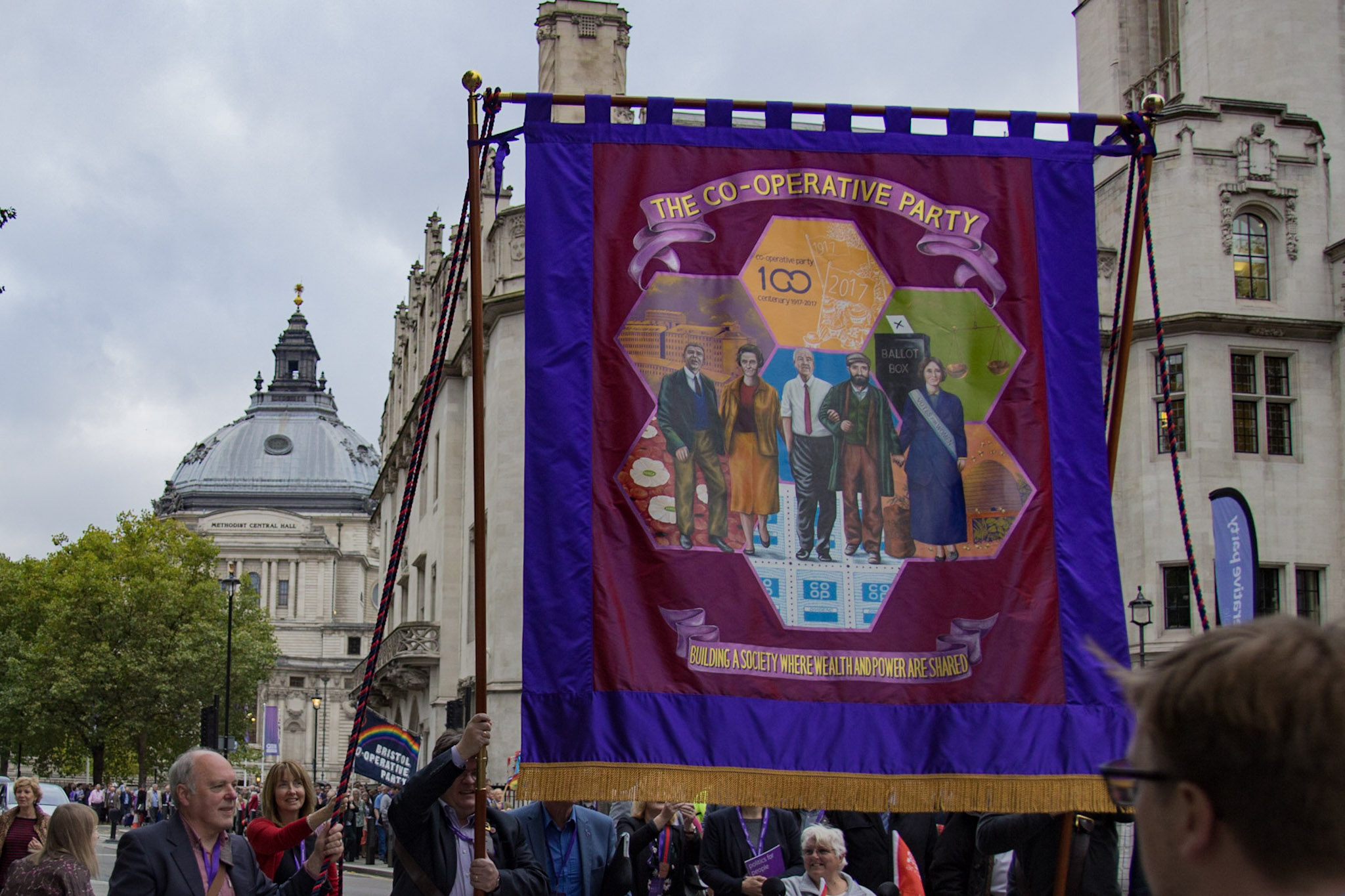As the Co-operative Party celebrated its centenary anniversary, it reached an all-high membership of 10,000. The Party currently has 38 Labour/Co-op MPs, the largest number to date. It also includes 11 Labour/Co-op Assembly Members in Wales and eight Labour/Co-op MSPs in Scotland.
Over 500 Labour/Co-op councillors are also active across Britain, along with hundreds other Labour councillors who are also members of the Co-op Party.
In its annual report, the Party reports that Labour/Co-op MPs were active in debates on the Bus Services Bill, the Small and Medium Sized Co-operative Development Bill, the Profit-sharing and Company Governance Bill, the Bank of England Financial Services Act, the Housing Bill and the Enterprise Bill.
“In between our celebration we must focus on ideas to change our country,” said Co-op Party chair, Gareth Thomas. Speaking at the party’s annual conference in London, Mr Thomas argued that more economic power had to be in the hands of people. He called for more support for credit unions, renewable energy co-ops and co-op schools.
For the year ended December 2016, the party reported a total income of £1.062m, with a surplus of £75,279.
In Scotland, Labour/Co-op MSPs were active on a number of issues, making the case for co-operative and mutual ownership of land, fan ownership of football clubs and co-operative models in transport. The Scottish Co-operative Party also published the Co-operative Agenda for Scotland at the Scottish Labour Conference, while contributing to the Scottish Labour manifesto on issues such as the future of Co-operative Development Scotland, not-for-profit models in local transport and support for community renewable energy.
In Wales, the Co-operative Party Assembly Group prioritised housing, heal and social care and community assets but also intervened on a range of issues set out in “a co-operative agenda for Wales”, including local energy, transport and housing.

Throughout 2017 the party hosted a number of events, including meetings in Greater Manchester and Liverpool to discuss the opportunities devolution and the new city regions could bring. Labour/Co-op councillors in Manchester, Salford, Durham and Lewisham called for greater transparency in tax affairs by councils avoiding doing business with organisations which avoid tax.
As part of its objective to become a digital leader, the party increased its social media reach to 30,000 people, while website visitors increased from 60,000 to 80,000.
Over the past 12 months the Co-op Party published three reports – Taking Care: a co-operative vision for social care; By Us, For Us: a co-operative vision for combined city and county authorities; and Credit unions and local government.